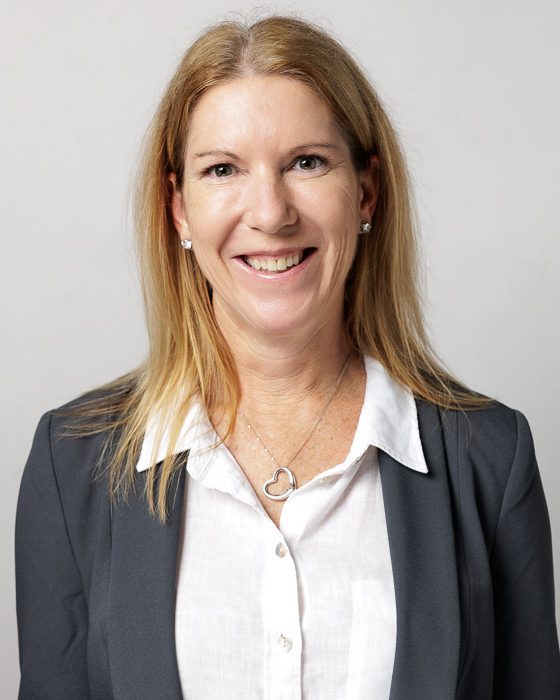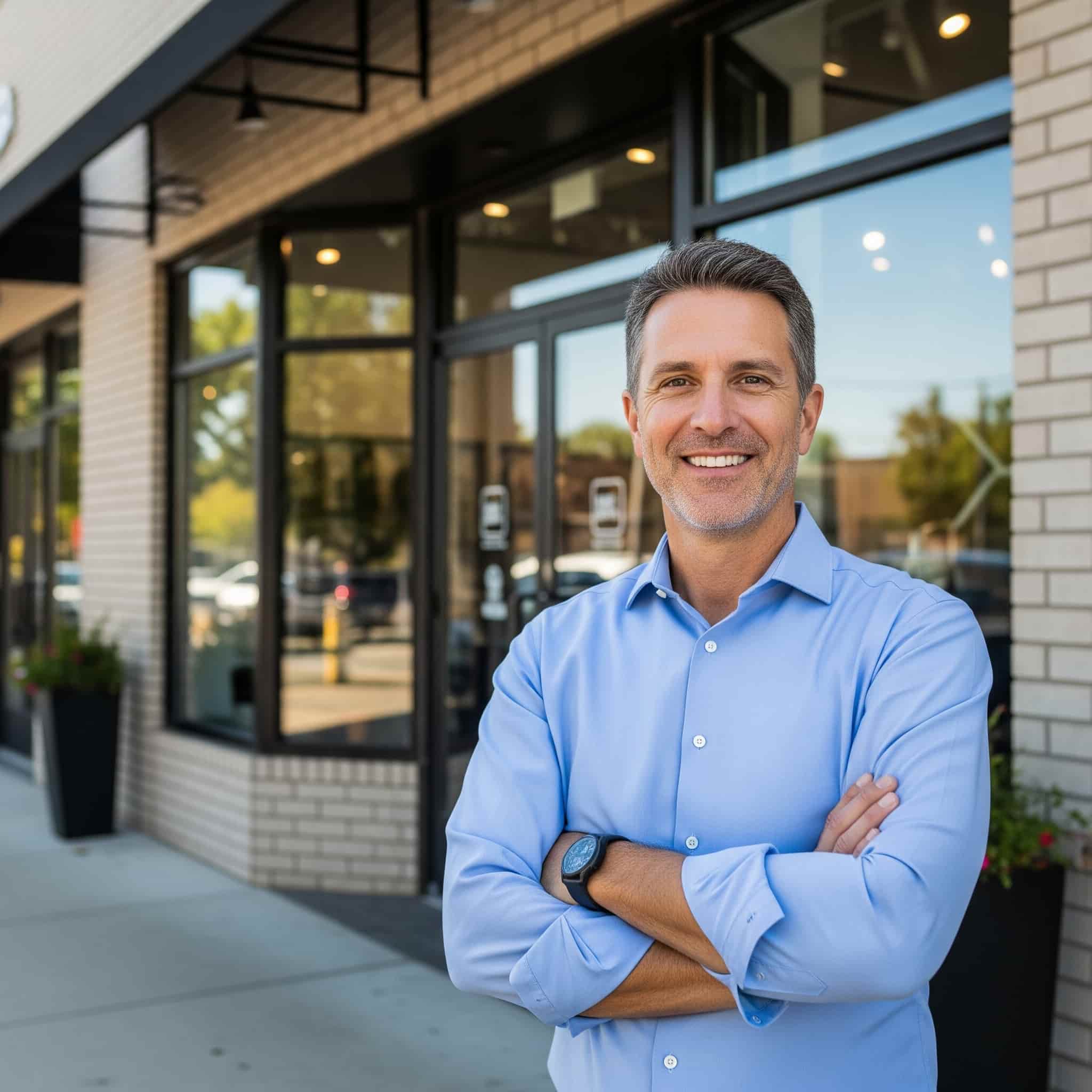Home » Commercial Property Australia – Tools, Guides & Expert Insights » Should You Buy or Rent Commercial Property In Australia?
Should You Buy or Rent Commercial Property In Australia?
This guide is designed to be a comprehensive walk-through for anyone asking themselves if they should buy or rent commercial property in Australia.
I’ll cover the the costs involved in acquiring commercial property, the tax implications, and what options might (or might not) make sense in different situations for Australian business owners.

About the Author
About the Author Nadine Connell is Co Founder of Smart Business Plans Australia, a leading commercial property loan finance broker. Nadine has helped over 3,300 Australian business owners and property investors over 15 years. Connect with Nadine on LinkedIn
Table of Contents
📖 Calculating read time...Home » Commercial Property Australia – Tools, Guides & Expert Insights » Should You Buy or Rent Commercial Property In Australia?
Should You Buy or Rent Commercial Property In Australia?
This guide is designed to be a comprehensive walk-through for anyone asking themselves if they should buy or rent commercial property in Australia.
I’ll cover the the costs involved in acquiring commercial property, the tax implications, and what options might (or might not) make sense in different situations for Australian business owners.

About the Author
About the Author Nadine Connell is Co Founder of Smart Business Plans Australia, a leading commercial property loan finance broker. Nadine has helped over 3,300 Australian business owners and property investors over 15 years. Connect with Nadine on LinkedIn
Table of Contents
📖 Calculating read time...Every month, you write that rent cheque and wonder if buying makes more sense. You’re not alone, and deciding whether to buy or rent commercial property isn’t always obvious.
This guide gives you the complete picture on whether you should buy or rent commercial property for your business. No guesswork, no vague advice. Just clear insights based on 15+ years helping Australian businesses make this exact decision. We’ll cover when buying makes overwhelming sense, when renting is smarter, the real costs of each option, and how to structure the decision properly.
By the end, you’ll know which path is right for your business and exactly what to do next.
Work Out Your Specific Numbers
Before diving into strategy, see what the numbers look like for your situation. Our calculator shows your borrowing capacity, upfront costs, monthly payments, and break-even timeline in 60 seconds.
How Buying vs Renting Commercial Property Actually Works
The question of whether to buy or rent commercial property isn’t just about monthly costs. I’ve walked hundreds of business owners through this decision, and the ones who get it right are looking at the complete picture.
When you rent commercial property, you know exactly what you’re paying each month. It’s predictable, it’s someone else’s problem when things break, and you can walk away if your business needs change. That simplicity has real value, especially for growing businesses or those testing new markets.
Buying commercial property flips the equation entirely. Yes, you’re building equity instead of making your landlord wealthier. But you’re also taking on stamp duty (typically 4-5% in most states), ongoing maintenance, interest costs, and the risk that your business circumstances might change.

Here’s what most people miss: the tax benefits of owning can be substantial. You’re deducting interest, claiming depreciation, and potentially reducing your tax bill by tens of thousands annually. That’s money that stays in your business rather than going to the ATO. Your accountant should model this for your specific situation, but it often tips marginal decisions toward buying.
The other piece that catches people off guard is how lenders assess owner-occupier commercial property loans. Your business profit matters far more than your personal income. A profitable business with $150,000 EBITDA might borrow $400,000-$500,000, even if the owners don’t pay themselves huge salaries. That opens doors you might not realise are available.
Break-even timelines vary wildly when deciding whether you should buy or rent commercial property. Sometimes you’re ahead within 18 months. Other times it takes seven years before the equity gains outweigh the upfront costs. Your specific numbers depend on your rent level, purchase price, deposit size, and how long you plan to stay put. This is why running the numbers is crucial before making assumptions.
Factor | Renting | Buying |
|---|---|---|
Upfront Cost | Bond + first month (low) | 20-30% deposit + stamp duty + costs (high) |
Monthly Cost | Fixed rent payment | Mortgage + rates + insurance + maintenance |
Equity Building | $0 (money gone forever) | Principal reduction + appreciation |
Tax Benefits | Rent is tax-deductible | Interest + depreciation deductible |
Flexibility | High (can relocate easily) | Low (committed to location) |
Maintenance | Landlord’s responsibility | Your responsibility |
The Real Costs of Buying (Beyond the Purchase Price)
Let’s talk about what actually happens when you buy commercial property, because the purchase price is just the beginning when making your rent or buy business premises decision.
Stamp duty hits hard. In Queensland, you’re looking at roughly 4.5% on a commercial property purchase. Buy an $800,000 warehouse and you’re paying around $36,000 in stamp duty alone. New South Wales is similar. Victoria’s a touch higher. This isn’t negotiable, and you need it in cash.
Legal and conveyancing costs run $3,000-$8,000 depending on complexity. Add building inspections, pest checks, and due diligence costs. You’re easily spending another $2,000-$5,000 before you own anything. These costs are real, immediate, and completely separate from your deposit.
Lender fees vary, but expect valuation costs ($800-$2,000), application fees (sometimes $600+), and potentially a mortgage broker fee if you’re not using someone like us who gets paid by the lender. All of this needs to be in your budget before you make an offer. Learn about the full purchase process →
Typical Upfront Costs for $800,000 Property
Cost Item | Amount |
|---|---|
Deposit (25%) | $200,000 |
Stamp Duty (QLD ~4.5%) | $36,000 |
Legal & Conveyancing | $4,000 |
Building & Pest Inspections | $1,500 |
Valuation Fee | $1,200 |
Lender Application Fees | $600 |
Total Upfront | $243,300 |
Then there’s the ongoing costs that people forget about when deciding to buy or rent commercial property. Building insurance runs $2,000-$5,000 annually depending on property type and location. Council rates add another $3,000-$8,000 per year. Strata fees if you’re buying in a complex. Maintenance reserves of 1-2% of property value annually for unexpected repairs.
A $600,000 property might cost you $10,000-$15,000 per year in holding costs beyond your mortgage payments. That’s real money that needs to come from somewhere, and it doesn’t include major capital expenditure like roof replacements or HVAC systems.

The Hidden Benefits of Buying That Tip Marginal Decisions
Here’s where buying gets interesting when you run the numbers properly on whether to buy or rent commercial property.
Tax deductions beyond just rent. When you rent, you deduct rent. Simple. When you buy, you’re deducting loan interest (potentially $30,000-$50,000 annually on a decent-sized loan), depreciation on building and fixtures ($15,000-$30,000 annually for the first decade), council rates, insurance, maintenance, and repairs. Add it up and you might be deducting $60,000-$80,000 more than you would renting the same property.
At a 30% business tax rate, that’s $18,000-$24,000 back in your pocket each year. Over ten years? You’re looking at $180,000-$240,000 in additional tax savings. This alone can cover most of your upfront costs and then some.
Equity accumulation is the silent wealth builder. Every mortgage payment has a principal component. On a $500,000 loan at 7%, you’re paying down roughly $10,000 of principal in year one, increasing each year as the interest component falls. After five years, you’ve reduced your loan by maybe $60,000 just through regular payments.
Add property appreciation of say 4% annually (conservative for commercial property in decent locations), and your $800,000 property might be worth $970,000 in five years. That’s $170,000 in equity gain, plus your $60,000 in principal reduction, minus your upfront costs of maybe $240,000. You’re starting to break even or come out ahead, and that’s before factoring in the tax savings.
Control and security matter when deciding whether to buy or rent commercial property. No landlord can decide not to renew your lease because they want to sell. No rent increases at renewal time. No worrying about whether the property will still be available when your lease expires. For businesses that depend on location or have invested heavily in fitouts, this certainty is worth something tangible.
When Renting Actually Makes More Sense
Buying isn’t always the answer, even when you can afford it. I’ve talked clients out of buying more times than I’ve encouraged it, because sometimes renting is legitimately smarter when you should buy or rent commercial property.
If your business is still finding its feet, renting keeps you flexible. A three-year lease with options gives you time to prove the business model, test the location, and figure out if this is really where you want to be long-term. Committing hundreds of thousands to a property purchase when you might need to pivot is unnecessarily risky.
If you’re in a rapidly changing location, locking yourself into property ownership might mean watching the area decline around you. Some retail strips lose relevance as shopping habits change. Some industrial areas get rezoned. Some office precincts become less desirable as workers shift to different suburbs. Renting lets you adapt without the anchor of owned property.
If your cash is better deployed elsewhere, using $200,000 for a deposit means that money isn’t available for inventory, equipment, marketing, or hiring. If your business can generate 20% returns on invested capital, tying up funds in property returning 8-10% total (including tax benefits and appreciation) might not be optimal when thinking about whether to buy or rent commercial property.
If interest rates are at historic highs, sometimes waiting makes sense. Commercial property rates around 7-8% mean you’re paying significant interest, and if rates are likely to fall, refinancing in a few years at lower rates might be the play. Though trying to time the market is dangerous, there are legitimacy extreme conditions where waiting is sensible.
If you’re planning significant expansion or contraction, being locked into a fixed property size creates problems. A growing business might outgrow the space within 18 months. A business facing headwinds might need to downsize. Renting gives you the flexibility to adjust as circumstances change.

The Hybrid Approach: When to Consider Both
Some of the smartest operators don’t see this as purely buy or rent. They use hybrid structures that give them the benefits of both when deciding whether to buy or rent commercial property.
Buy your core premises, rent your expansion space. You own the 400sqm warehouse you definitely need, giving you certainty and equity building. You rent the additional 200sqm you need for overflow during busy periods, keeping flexibility. Best of both worlds.
Buy through your SMSF, rent it to your business. Your super fund owns the property (building retirement wealth), your business rents it (tax-deductible payments), and you get both asset protection and tax efficiency. This structure requires careful setup and compliance, but it’s powerful for the right situations.
Buy in a cheaper location, keep a rental presence in premium areas. You might own a warehouse in an outer suburb where property is affordable, but rent a small showroom in a prime retail location. Your main operational costs are covered by owned property, but you maintain market visibility through strategic rentals.
Buy one property, use equity to fund business growth instead of buying more. Rather than owning every property you use, you might own one strategically selected building and use the equity it generates to fund other business opportunities. The property provides a foundation and access to capital, but you’re not property-heavy.
The Numbers You Actually Need to Run
Forget the generic advice. Here’s what you specifically need to calculate when deciding whether to buy or rent commercial property for your situation.
Current rent vs mortgage + holding costs comparison. Get real numbers. If you’re paying $4,000/month rent, what would a comparable purchased property cost you in mortgage ($3,500?), plus rates ($600), insurance ($300), maintenance ($400) = $4,800/month. That’s $800/month or $9,600/year more. Can you afford that? Does the equity building and tax savings justify it?
Break-even calculation including all factors. Take your upfront costs (deposit + stamp duty + fees), divide by your annual benefit (tax savings + equity building + saved rent increases), and you get years to break even. If that number is longer than you plan to stay in the property, buying might not work for whether you should buy or rent commercial property.
Borrowing capacity reality check. Use a broker (like us) to determine what you actually qualify for, not what you think you might get. Knowing you’re pre-approved for $600,000 tells you what properties are realistic targets. Calculate your borrowing capacity →
Cash flow impact over 12 months. Model what happens to your business cash flow when you buy. Can you handle the first 12 months of mortgage payments, rates, and unexpected maintenance while still meeting your other business obligations? If it’s tight, renting might be safer.
Exit strategy and resale potential. Even if you plan to stay forever, things change. Is the property you’re considering something another business owner would want to buy if you need to sell in 3-5 years? Properties in good locations with flexible layouts have better exit options when deciding to buy or rent commercial property.
See Your Specific Numbers in 3 Minutes
Every business situation is different. Our calculator shows you exactly what buying vs renting looks like for your rent, purchase price, deposit, and time horizon.
How We Help You Make This Decision and Take Action
Working out whether you should buy or rent commercial property is step one. Making it happen is where things get interesting.
Our role starts with understanding what you actually qualify for. Numbers give you estimates, but every lender has different serviceability rules. Some are generous with established businesses. Others are stricter but offer better rates. We know which lenders suit your specific situation because we’ve placed hundreds of commercial property loans.
Pre-approval changes everything when you’re property hunting. Walking into negotiations knowing you’re approved for $600,000 means you can move fast when the right property appears. Commercial properties often sell quickly, and sellers take approved buyers seriously.
Structure matters enormously when deciding whether to buy or rent commercial property. Should the property be in your personal name, business name, trust, or SMSF? Each option has different tax implications, asset protection considerations, and lending requirements. We work with your accountant to get this right from the start, rather than discovering structure problems months into the process. Explore SMSF commercial property finance →
Lender selection isn’t about finding the lowest rate. It’s about finding the lender who suits your business structure, property type, and financial situation. A bank that’s perfect for a medical practice buying a consulting suite might be terrible for a manufacturing business buying a warehouse. We match you with lenders who actually want your type of deal.
The property itself influences lending outcomes when deciding whether to buy or rent commercial property. Some properties are easier to finance than others. Specialty properties, properties in regional areas, or properties with unusual zoning can be tricky. We help you understand what you’re getting into before you make an offer, so you’re not surprised when the bank says no.
Timing the transition from construction (if building) or settlement is crucial. Your current lease might need extending, or you might need bridging finance. We’ve done this enough times to anticipate the tricky bits and plan around them. Learn about construction finance →
After settlement, we help with the end loan refinance if you’ve used construction finance, review rates annually, and help you access equity as your property appreciates. Buying the property isn’t the end of our relationship, it’s the beginning.
Calculate Your Specific Numbers
Now that you understand the decision framework, see what buying vs renting commercial property looks like for your specific situation.
Get Your Buy vs Rent Analysis →
Takes 3 minutes. Shows borrowing capacity, upfront costs, monthly comparison, equity building, and break-even timeline.

Common Questions About Whether to Buy or Rent Commercial Property
How much deposit do I need to buy commercial property?
Most lenders require 20-30% deposit for commercial property purchases. If you’re owner-occupying your business premises, you might access up to 80% LVR (20% deposit). For investment properties, expect 70% LVR (30% deposit).
The good news is you don’t necessarily need this in cash when deciding whether to buy or rent business premises. Many of our clients use equity from their home or other properties to cover part or all of the deposit. Some use a combination of savings, business cash reserves, and property equity. Calculate your borrowing capacity →
Can I borrow based on business profit alone?
Yes, commercial property loans are assessed primarily on business financial performance, not personal income. This is completely different from residential lending and affects how you should think about whether to buy or rent commercial property.
Lenders typically use a serviceability multiplier of 2.5-3.5 times your annual net profit. For example, if your business makes $150,000 net profit, you might borrow $375,000-$525,000 depending on the lender and your specific circumstances. Your business needs at least two years of financials for most lenders to assess. Learn more about commercial property loans →
What interest rate should I expect?
Commercial property interest rates in Australia typically range from 6.0% to 7.5% as of 2025. This is generally 0.5-1.5% higher than residential home loan rates, which is important to factor into your decision about whether to buy or rent commercial property.
Your actual rate depends on several factors. Owner-occupied properties often get better rates than investment properties. Lower LVRs (bigger deposits) secure better rates. Stronger business financials mean better rates. Compare current commercial property interest rates →
When is the break-even point for buying vs renting?
Break-even varies wildly based on your rent level, purchase price, deposit size, and property appreciation. Generally, if you’re breaking even within 3-5 years and planning to stay longer than that, buying looks attractive when you’re weighing up whether to buy or rent commercial property.
The longer your time horizon, the more buying favours you because of equity accumulation and property appreciation. Calculate if buying makes more sense than renting →
What if I’m planning to build?
Construction finance for commercial property works differently from buying an existing building. The lender approves the total project cost, releasing funds progressively as construction milestones are completed. You typically pay interest-only on drawn funds during construction, then convert to principal and interest once complete.
Most lenders want detailed costings, approved plans, and a licensed builder under contract. Your deposit requirement might be higher (sometimes 30% rather than 20%). Learn about commercial construction loans →
Can I use my SMSF to buy commercial property?
Yes, buying commercial property through your SMSF is one of the most tax-effective structures available, especially if you’re leasing the property back to your own business. The rent payments become tax-deductible to your business while building your retirement wealth.
SMSF property purchases have specific rules around related party transactions, borrowing restrictions, and property use. Learn more about SMSF commercial property rules →
Related Resources
Loan Products
Ready to Make Your Decision?
You understand the framework for deciding whether you should buy or rent commercial property. Now let’s talk about your specific situation.
Book a free 30-minute consultation to discuss whether buying makes sense for your business right now. We’ll review your financials, answer your questions, and if buying looks right, outline exactly what you qualify for and what the process involves.
No obligation. No sales pressure. Just honest advice from a broker who’s helped hundreds of Australian businesses make this exact decision.
Or call Nadine directly: 1300 262 098.
About the Author
Nadine Connell is a Specialist Commercial Finance Broker with Smart Business Plans, focusing exclusively on helping businesses secure commercial property finance, equipment funding, and commercial loans.
With over 15 years of experience, she’s helped hundreds of Australian businesses decide whether to buy or rent commercial property, purchase their premises, expand into new locations, plan business growth, and structure finance that actually works for their situation.
Nadine believes in honest advice, clear communication, and only recommending deals that genuinely serve her clients’ interests. She’s not here to sell you a loan, she’s here to help you make the right decision for your business.
Disclaimer
This guide provides general information about commercial property decisions. Every business situation is unique, and the right choice depends on your specific circumstances, financial position, business goals, and risk tolerance.
This is not financial advice. Always consult with qualified professionals including a licensed finance broker, your accountant, and a solicitor before making commercial property decisions. Tax implications vary by individual circumstances and structure.
Prepared by Smart Business Plans